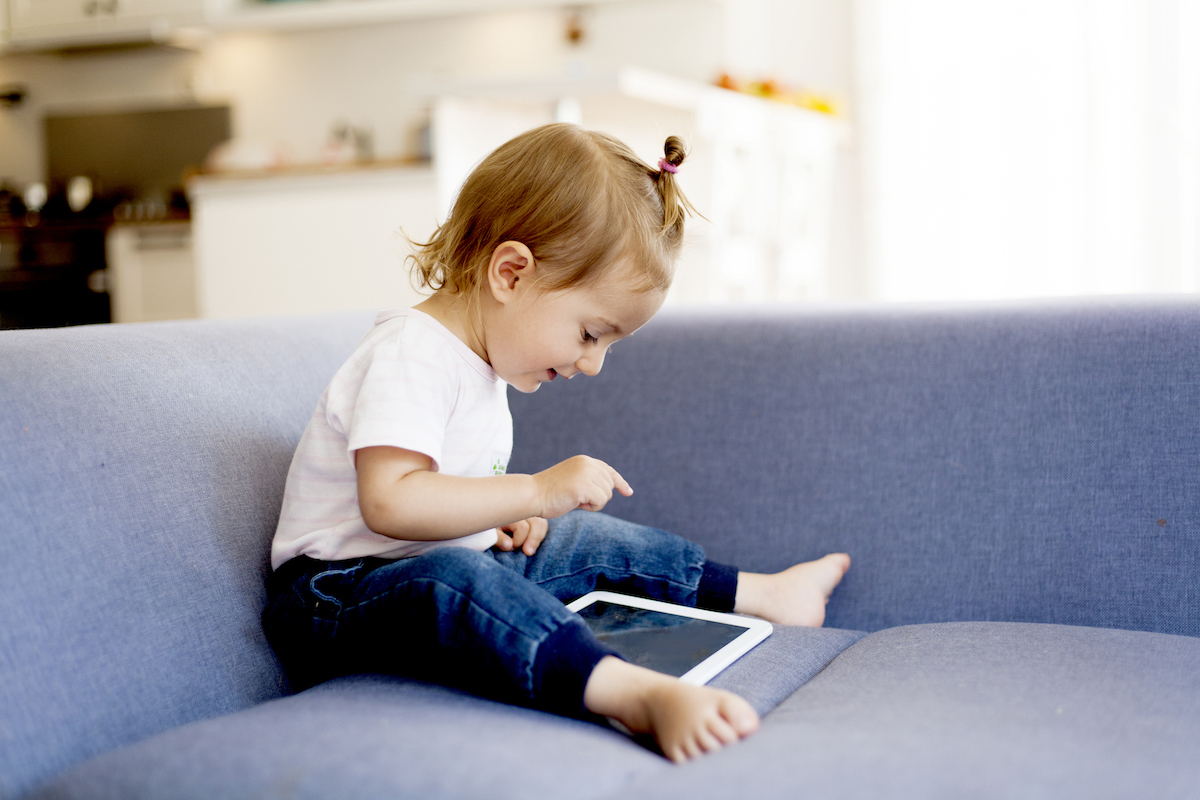Every morning after breakfast, my five year old brushes his own teeth. Then he comes in and breathes on me to have me check. If he does a good job, there is only a faint hint of meatballs on his breath. (What’s that? Mini meatballs are not a breakfast food? Welcome to my house!) If I can’t detect any hint of minty freshness, I send him back to the bathroom.
Overall success rate is about 40%. Still, I consider myself very lucky that we have arrived at a place where he brushes his own teeth at all. I am not a person who enjoys brushing other people’s teeth, even people I love more than life itself.
Of course, the child in question here is five, and we mostly all agree that brushing teeth is important for kids this age. It gets even more important for older kids who already have adult teeth. You need those teeth to last. Trust me, as a person who once chipped a tooth on an oyster cracker: good teeth are very valuable.
However: a question I get a lot is more about babies and toddlers.
“How important is it to brush my baby’s teeth? The dentist said that as soon as they get one tooth you have to brush it every night. Is that right?”
“Has anyone ever managed to brush a two year old’s teeth for two minutes? Is it important to do that?”
“My toddler is supposed to floss? Really? We got some flavored floss things but they just want to eat them. Help?”
So let’s go to the data: what do we know about the importance of tooth hygiene in very young children?
What do we know about toddler tooth hygiene?
We can start with the basic question of tooth decay and what causes it. This review article has some quite helpful notes, including pointing out that tooth decay should actually be thought of as an infectious disease, as much is caused by streptococcus bacteria, which feed on sugars in the mouth. These bacteria feed on sugars — notably sucrose — which means more sugar eating tends to lead to more cavities (these are technically referred to as dental caries in the literature).
These bacteria colonize the mouth basically as soon as the teeth erupt, so cavities can begin to form as early as the first teeth. Breastmilk and formula both contain sugars, so both can be substrates for the evil bacteria. To greatly simplify, brushing teeth can affect cavities by removing sugars and plaque that benefit the bacteria.
Notably, fluoride (in our water, and in some toothpaste) also protects teeth. The addition of fluoride to water has dramatically lowered childhood cavities over the past few decades. Much of this literature focuses on the importance of fluoride, the value of fluoride in toothpaste and in water, fluoride rinses and washes and so on. Really, fluoride is very good at protecting teeth.
The other piece of background that I think is important here is that the distribution of cavities is really skewed across kids. A huge share of cavities (like 80% according to that review paper) occur in 25% of kids. It may not surprise you, also, to know that cavities are highly correlated with socioeconomic status. Lower income children have more cavities, as do Black and LatinX children. A large share of this is likely due to differential access to health care, and differential treatment by the health care system. Differences in diet or access to fluoridated water may also play a role.
Should you brush your toddler’s teeth?
Official recommendations are to wipe infant gums with a clean cloth, and then begin brushing with a soft brush (no toothpaste) and then move up to toothpaste (no fluoride). Fluoridated toothpaste is introduced sometime later, and dental visits should start as soon as a year. The question is: what is the source of these recommendations?
Tooth brushing and general childhood dental care is correlated with better dental health and fewer cavities. These correlations, however, are very challenging to interpret given all of the other relationships in the data. Lack of tooth brushing is also associated with limited access to regular dental care, and also with consumption of high-sugar foods. Is it the lack of tooth brushing, or something else? From observational data, it is extremely hard to know.
We certainly have some evidence on these correlations — here is one example study in Germany which showed that late starting on tooth brushing (after 1 year) — but, again, this kind of evidence is really difficult to interpret.
There are a couple of small RCTs on dental hygiene information in general. These include one in Iran, and another on South Asian children. These do generally suggest reductions in cavities or pre-cavities, but they are small and it isn’t obvious if it’s the tooth brushing or some other behavior which really matters.
As far as I can tell, there is no strong, randomized evidence in favor of tooth brushing or gum wiping, beyond the benefits of fluoride. Which are real! Especially if you are in an area with low fluoride (check that out here) you probably want to make sure your children have some tooth fluoride (mostly through toothpaste). And brushing your teeth twice a day is a good habit so your mouth doesn’t smell like mini meatballs, so that’s a good reason to do it.
What I think is less obvious is whether you need to be obsessively wiping your baby’s gums, or brushing the one tooth your six month old has. It’s fine to do, obviously, but there are a lot of things to do and, you know, some of them are more important than others. In principle, cavities can arise very early in life, but they aren’t common. If you want to wipe your baby’s gums, go for it. If you forget one day, the data isn’t going to judge you.
Community Guidelines














